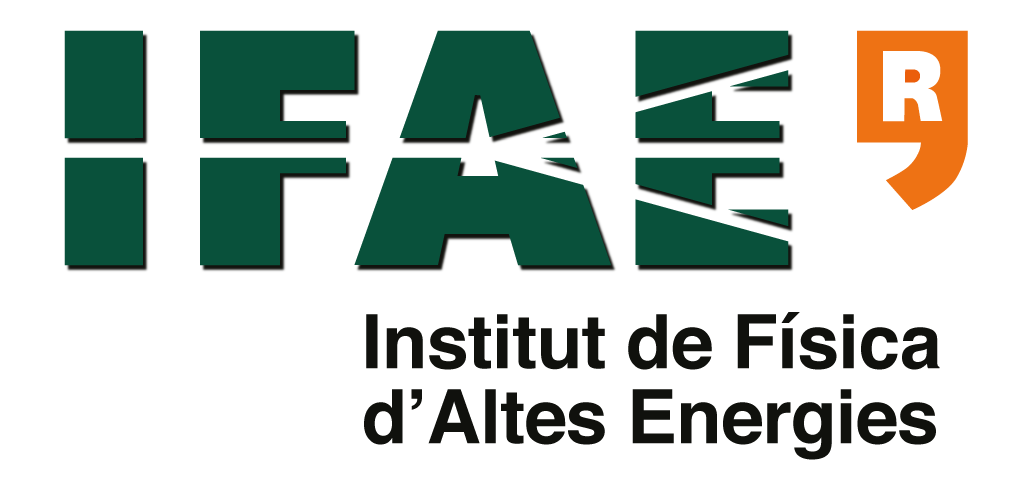Projects
Choose among these 6 projects
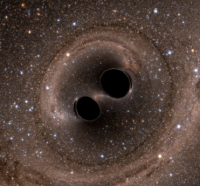
Gravitational Waves detection with the LIGO-Virgo Interferometers & the Einstein Telescope
IFAE is a member of the LIGO and VIRGO collaborations related to Gravitational Waves detection using terrestrial interferometry. A group of researchers from IFAE has taken significant responsibilities in the VIRGO experiment related to the control of the stray light inside the experiment, which is considered a limiting factor for its sensitivity. In the physics analysis front, the IFAE team is developing a complete research program using LIGO/Virgo data for which a Deep Learning (DL) approach is being taken. IFAE is also playing a central role in the preparation of the next-generation Einstein Telescope (ET) experiment and the design of the interferometer.
Project 1 Supervisor: Andrew Lundgren / Mario Martínez The candidate will have the opportunity to participate in the analysis of the data using a state-of-the-art DL approach together with the rest of the IFAE team.
Project 2 Supervisor: Lluisa Mir The candidate will be offered the opportunity to participate in the IFAE activities related to the construction of new detectors for Virgo, involving high-tech photosensors and sophisticated simulations of the propagation of light inside the interferometer.
Project 3 Supervisor : Mario Martínez. The candidate will be offered the opportunity to participate in the IFAE activities related to the design of the ET optical cavities and the stray light mitigation and pre-alignment systems using sophisticated simulations.
Number of students: 3
Place: IFAE

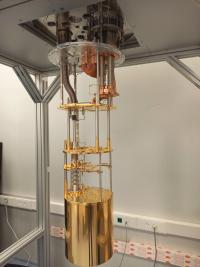
Superconducting quantum computers
In the QCT group at IFAE we develop superconducting quantum circuits for applications in quantum computation and quantum sensing of high energy physics events. Superconducting qubits are electrical circuits behaving as artifical atoms which resonate at the microwave frequency domain. Qubit operations correspond to microwave engineered pulses which rotate the qubit state at will, and their quantum state is read out using superconducting resonators or cavities.
In this project, the student will participate in the characterization of superconducting resonators and cavities to use with superconducting qubits, analyzing the data and evaluating the quality of the materials. Tests of device characteristics at room temperature and low temperature will be conducted.
Number of students: 1
Place: IFAE


Beyond the Standard Model physics in the sky
This project explores cosmological aspects of physics beyond the Standard Model from a theoretical perspective while incorporating new experimental results in cosmology, gravitational wave observatories, and large scale structure (LSS) surveys (DESI, Euclid). By analyzing their implications for fundamental physics, the project offers an opportunity to engage with modern theoretical modeling, data analysis techniques, and a range of cutting-edge beyond the Standard Model scenarios, including phase transitions, topological defects, axions, primordial black holes, dark energy, and dark matter.
Number of students: 2
Place: IFAE

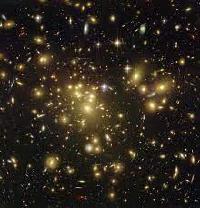
Weak gravitational lensing
In this summer internship the students will be introduced to the study of weak gravitational lensing and its applications in the field of cosmology and astrophysics. They will work within IFAE’s Observational Cosmology group, which is composed by several experts in the field. During the internship, students will use python software to simulate images of galaxies with known properties and then introduce weak lensing effects to study their impact. In that way, they will implement various dark matter density profiles, varying the mass distribution of the lens, and also the redshifts of the lens and source galaxies, understanding the relevant parameters that can affect the weak lensing distortions. They will also study the effect of galaxy blending, and use machine-learning techniques to distinguish these cases.
The internship will provide students with experience in python programming and data analysis, as well as the understanding of the weak lensing effect and its significance in cosmology and astrophysics. They will also gain experience in presenting and discussing their work and findings in front of colleagues at weekly group meetings.
Number of students: 1
Place: IFAE

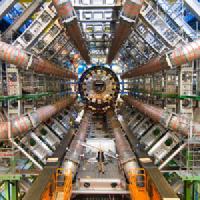
Particle Physics with the ATLAS Experiment @ the LHC
The student will work in the IFAE ATLAS group in topics such as:
- Search for beyond the Standard Model particles in the ATLAS detector like new pseudo-scalars coupling to top quarks. The student will investigate the potential of finding them using several independent selections and combining the information in a deep neural network discriminating signal from background. The study will use Monte Carlo simulations.
Number of students: 1
Place: IFAE

Characterization of Pixel Detectors
Highly segmented silicon sensors are widely used in High Energy Physics as precision tracking devices. Upgrades of the CERN experiments to high luminosities set unprecedented requirements with respect to radiation hardness and require the development of new generations of silicon detectors. The student will work at the IFAE Pixel Lab to help gain a deep understanding of the charge collection and the underlying signal formation in the silicon sensors for particle physics or medical imaging applications.
Number of students: 1
Place: IFAE


